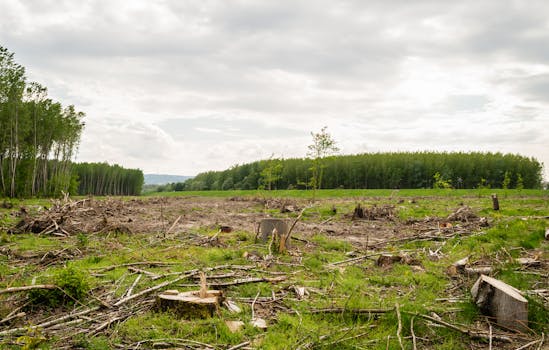
Introduction

The impact of climate change on global ecosystems is profound and far-reaching. As temperatures rise and weather patterns shift, the delicate balance of natural habitats is disrupted. This article examines the various ways climate change is affecting ecosystems around the world.
Section 1: Biodiversity Loss

Biodiversity is essential for the stability of ecosystems. Climate change leads to habitat destruction, which in turn causes species extinction. For instance, many animals are unable to adapt to the rapidly changing temperatures and are facing extinction due to loss of food sources and habitat.
Section 2: Changes in Habitat

As the climate changes, many ecosystems are undergoing significant transformations. Forests are shifting, wetlands are drying up, and coral reefs are bleaching. These changes not only affect the species that inhabit these areas but also the services they provide to humanity, such as clean air and water.
Section 3: Ocean Acidification

The oceans absorb a significant amount of CO2, leading to ocean acidification. This phenomenon impacts marine life, particularly organisms like shellfish and corals which are vital to marine ecosystems. The decline of these species can disrupt food chains and affect fishing industries worldwide.
Conclusion

In conclusion, the impact of climate change on global ecosystems is a pressing concern that requires immediate attention. From biodiversity loss to habitat changes and ocean acidification, the effects are widespread and interconnected. Addressing climate change is not only crucial for the environment but also for the survival of humanity.




